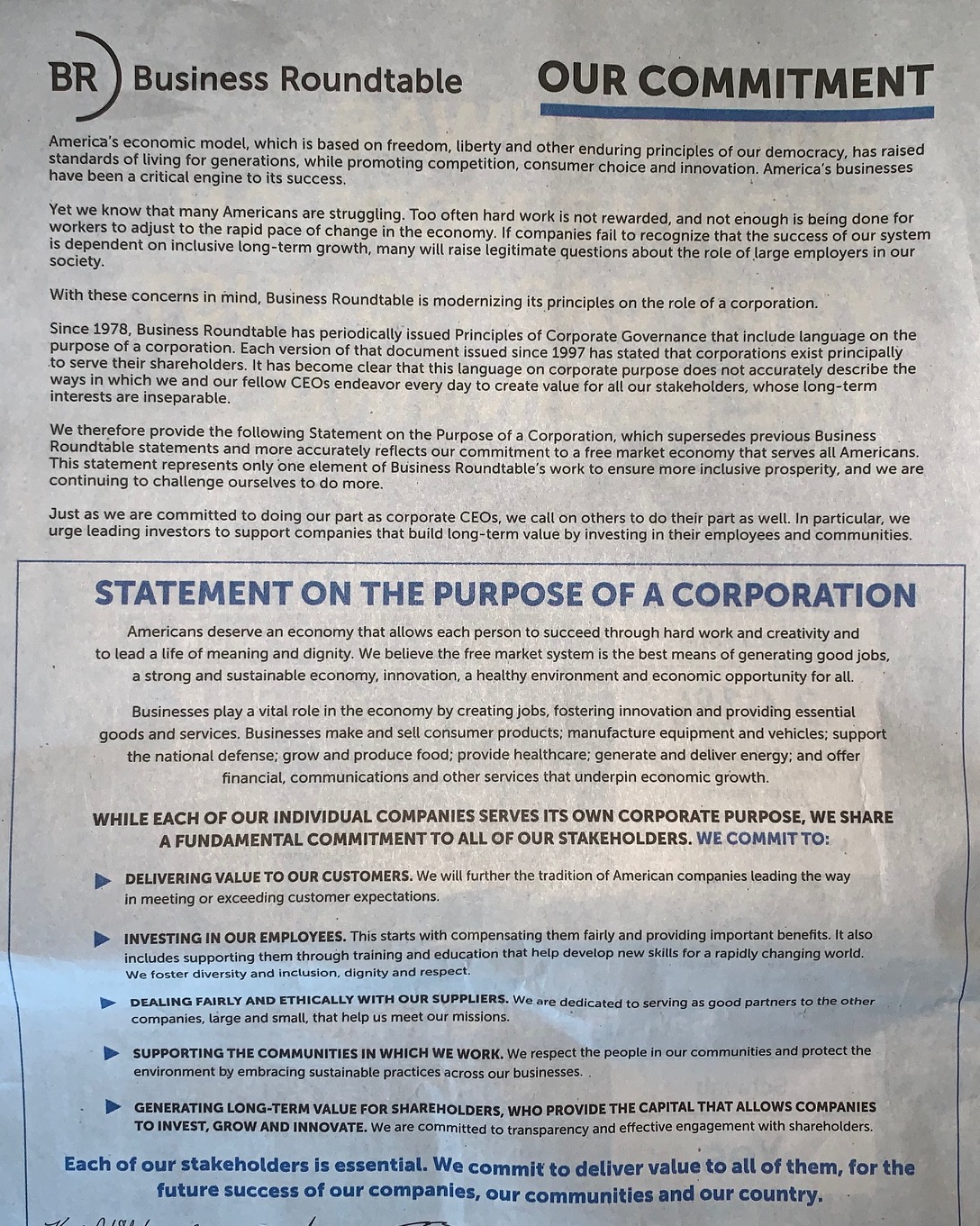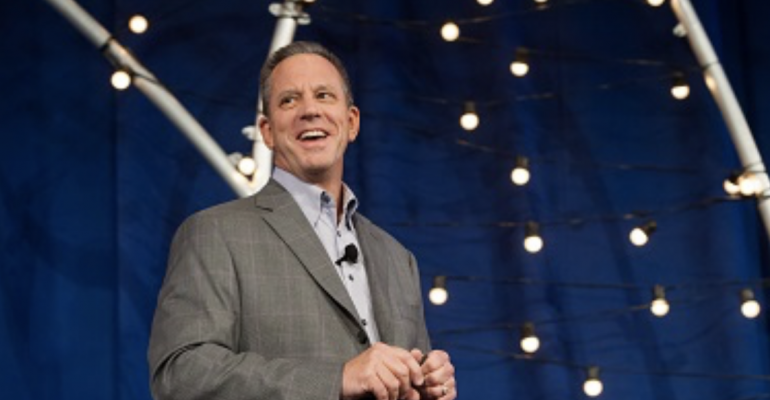On Monday, August 19, the Business Roundtable—an association of chief executive officers from more than 200 of America’s largest companies—published a “Statement on the Purpose of a Corporation” that, for the first time, explicitly broadens that purpose beyond simply maximizing shareholder value. For both corporate and association meeting planners, this change could have an effect on the work they do.
Specifically, the new purpose put forth by the Business Roundtable acknowledges that fulfilling the needs of other stakeholders—customers, employees, suppliers, and communities—should be considered essential components of a corporation’s success. In short, the new statement gives more weight to long-term progress rather than quarterly earnings, saying that “if companies fail to recognize that the success of our economic system is dependent on inclusive long-term growth, many will raise legitimate questions about the role of large employers in our society.”
We asked David Peckinpaugh, president of Maritz Global Events and an executive committee member for the Meetings Mean Business coalition, about the ramifications that could come from this revised corporate mission—particularly for the people who create corporate training, educational, and customer events, as well as those who run association events that educate and connect corporate employees within a given industry.
MeetingsNet: What is your initial reaction to this revised “purpose of a corporation?”
Peckinpaugh: On one hand, I say good for them. I think it is great that this group has come out and explicitly put a stake in the ground. On the other hand, I say what took them so long? A lot of companies, including ours, have already moved down that path and seen positive results by being committed to the multiple-stakeholder model that focuses on customers, employees, suppliers, and communities in addition to shareholders.
It will be interesting to see what kind of traction this movement actually gets. It’s a big proclamation, and you are talking about a fundamental behavioral shift for much of corporate America, and that is not going to come quickly or easily.
MeetingsNet: What could this new, wider focus on multiple stakeholders mean for meeting and events, which have training, professional development, networking, community giveback, and other long-term objectives?
Peckinpaugh: Events should be one of the key strategies that brings to life this shift in corporate purpose. There is no better way to change human behavior than in a face-to-face environment. You can look at it much like a channel approach: How will you use events to take care of customers? Take care of employees? Of suppliers? Of the community? Events can be the tip of the spear, leading the charge to drive this kind of change the Business Roundtable CEOs signed on for.
MeetingsNet: The test of this new corporate mission will be the next economic downturn, when corporations will have to decide whether to keep investing in their human assets at the expense of next quarter’s earnings.
Peckinpaugh: Absolutely. When you look at the 2009 recession, we saw a significant drop in training and educational investment through face-to-face meetings. But the companies who cut a lot in that area saw a dramatically negative impact on their long-term business; it took them much longer to get back where they were once the economy moved past its bottom point. There is a lot of data from 2011 and 2012 that shows the companies that made the short-sighted decisions in 2009 and 2010 really paid the price in the following years, and then they had to get back into the game and revamp, which requires a ton of effort and expense anyway. So, whether it is a sales meeting or incentive, a channel program, or other types of events, the returns will be there for those organizations that stay the course in a difficult economic landscape.
MeetingsNet: Do you have confidence in the typical corporate executive’s mindset as it relates to meetings and events?
Peckinpaugh: For the most part I do. For instance, the CEO of SAP said in a recent interview that he looks at face-to-face meetings as investments and not cost centers. And that is the big mental shift I think more executives are making, as they should in keeping with the new corporate mission many of them signed on to. They see meetings and events as investments in brand amplification, investments in their people, and investments in eventual growth. Our company recently came out with an impact study that identified six core objectives for holding events: increased direct revenue; inspiring business growth; enhancing brand promise; improving loyalty and retention of customers and employees; driving better engagement; and furthering professional development. And it’s clear that many companies suffered not just during the last downturn but for a long time after because they pulled back too much of their investment in meetings and events.
Of course, we will see who is really committed to this new corporate mission when economic conditions make it time for hard decisions to be made—which organizations will stay on the new path and which will go back to their old perspective and old behavior?






